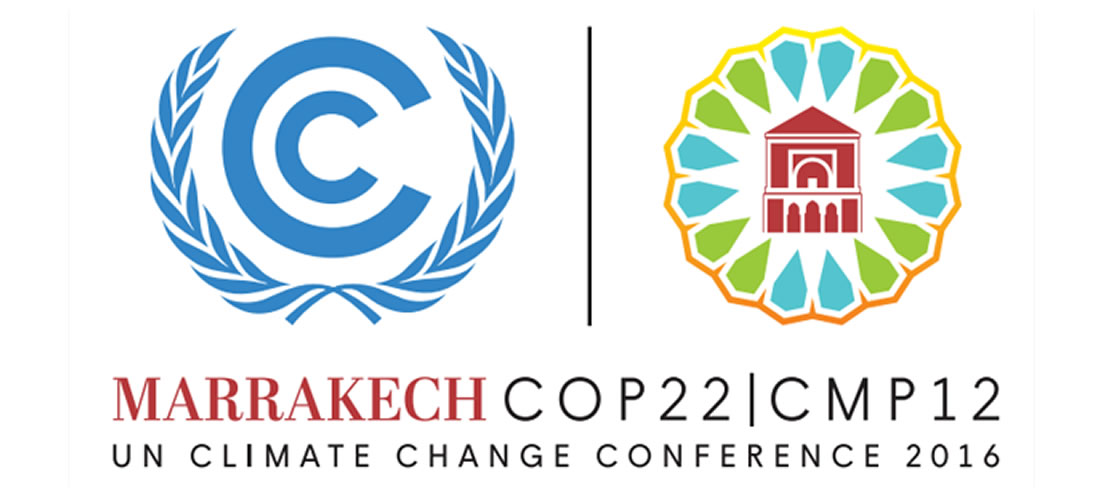Making the business voice heard TOP MESSAGES FOR COP22
WBCSD supports the swift implementation of the Paris Agreement. This implementation must be accelerated by sound policy signals, effective economic mechanisms and strong leadership from business. We must continue the collaboration that brought the Paris Agreement into being. We can only fulfil its ambitions and achieve the scale of transformation that is urgently needed by working together. WBCSD is calling for:
- Sound policies – including national emission reduction plans and associated policies and regulations that will be strengthen and improved over time:
WBCSD and our Global Network will facilitate dialogues between business and policy-makers at the national level to strengthen the Nationally Determined Contributions and provide input to UNFCCC on best practices, harmonized rules and timelines to promote a race-to-the-top.
- Effective economic mechanisms such as global, robust and meaningful carbon pricing, removal of fossil fuel subsidies and provision of additional sources of climate funding:
WBCSD can contribute lessons learned on the most effective carbon pricing mechanisms and their linkages that will facilitate the transition towards a low carbon future.
- Strong business leadership through global partnerships to accelerate structural transformation, technological change and innovation, as well as ambitious action at the company level:
WBCSD members are already taking the lead by scaling up solutions through the Low Carbon Technology Partnerships initiative (LCTPi) to maximize the business opportunities and minimize the risks created by climate change. Addressing climate change is key to achieving the Sustainable Development Goals.
TOP MESSAGES TO POLICY-MAKERS
Unlock the potential of NDCs to drive low-carbon solutions and innovation
- Review and strengthen NDCs to take them to their highest level of ambition
- Increase emission reduction targets within the next 2 years to ensure an aggregate effect matching the Paris Agreement goal of staying well below 2°C or 1.5°C
- Ensure a wider sectoral scope including:
- Energy-related targets and energy transition timelines to scale up renewable energy sources and improve energy efficiency within the next 4 years
- Roadmap to decarbonize the transport system
- Plans to enhance climate smart agriculture and reforestation
- Plans for low carbon cities and energy-efficient buildings
- Plans to develop and deploy technologies for carbon sequestration
- Adaptation plans to enhance resilience and contribute to SDGs
- Engage with business to design and implement NDCs that remove barriers to innovation and technological transfer; and drive deep system transformation and structural change across developed and developing economies.
- Set up a transparent and harmonized UNFCCC review mechanism to promote a race-to-the top at the global level
- Agree on standardized timelines for all NDCs in line with the five-year review cycle starting in 2020, using the same baseline
- Include business in the discussions on the use of standardized methods for accounting, reporting and verification
- Share best practice guidelines on high-performing NDCs to increase the successful implementation of other NDCs.
Scale up financial resources to invest in a low-carbon future
- Scale up public and private investment
- Design climate finance roadmaps where additional sources of finance contribute to the target of USD 100 billion/year by 2020
- Facilitate private sector engagement on the GCF Board and at the country level to leverage and amplify the level of private capital flows.
- Implement meaningful carbon pricing mechanisms (article 6)
- Ensure robust and complementary carbon pricing mechanisms (such as carbon tax, market based mechanisms, standards or a combination of these and other appropriate mechanisms) to redirect investments towards low carbon solutions
- Ensure coherent regulations between national and regional carbon markets and alignment between the various systems with clear global rules aiming for global coverage in order to prevent economic distortions and carbon leakage
- Set up global market-based mechanisms in the international aviation and maritime sectors.
- Set clear timelines for the removal of fossil fuel subsidies
TOP MESSAGES TO BUSINESS LEADERS
Business is leading the transition to a low-carbon economy. WBCSD is harnessing the power of collaboration to implement solutions at scale. Businesses can go further and faster, when we work together.
Over 170 companies and 70 partners have joined the Low Carbon Technology Partnerships initiatives (LCTPi). No other business-led initiative has the size, scale and potential impact of LCTPi. 102 companies have made public endorsements of LCTPi and are ready to move to implementation. Over 1500 business representatives and policy makers have contributed to shaping the solutions in international dialogues conducted in key emerging markets over 2015 and 2016. We are tracking the progress of LCTPi and we will present the results at every COP. We must scale up action in all markets. We urge more companies to join us.
- Join one of the 8 LCTPi groups: renewable energy; low carbon transport fuels; low carbon freight; cement; chemicals; energy efficiency in buildings; forests and climate smart agriculture.
- Share best practices and collaborate on meaningful solutions through regional and global LCTPi dialogues and platforms.
- Redirect investments to low carbon solutions compatible with the 2ºC trajectory
- Develop organizational capacity to implement new technologies and business models for low carbon solutions
- Take advantage of internal carbon pricing as a greater incentive to invest into low-carbon solutions and as a risk management tool to screen the viability of projects.
- Adopt science-based target methodologies to understand how you can reduce emissions at the company level, using a learning by doing approach, starting with scope 1 and 2 emissions and with selected business units or countries.
- Develop action plans to enhance adaptation and resilience throughout the supply chain and contribute to SDGs.
Contacts: Maria Mendiluce (mendiluce@wbcsd.org), Elise Buckle (buckle@wbcsd.org)
 Cs
Cs